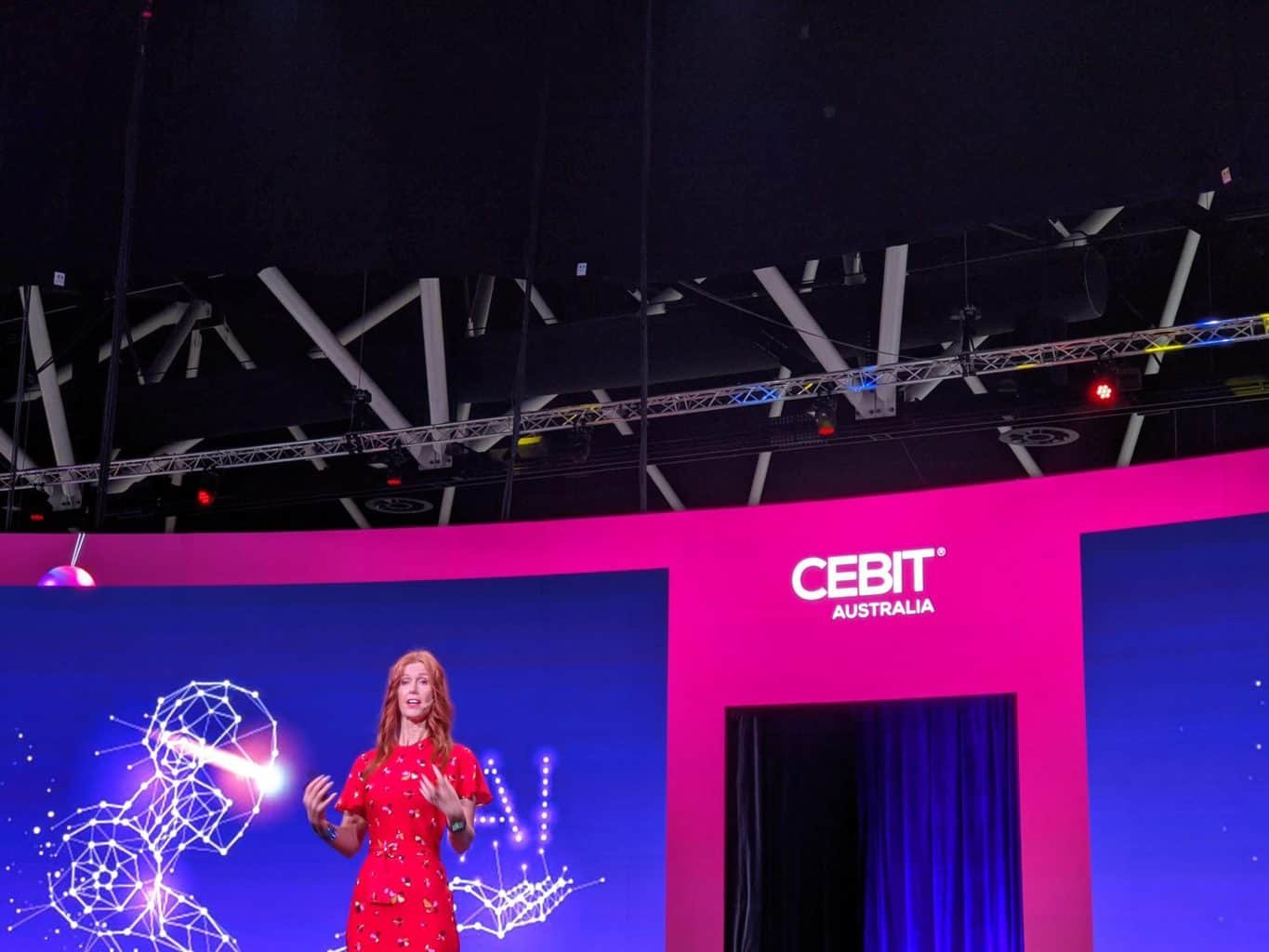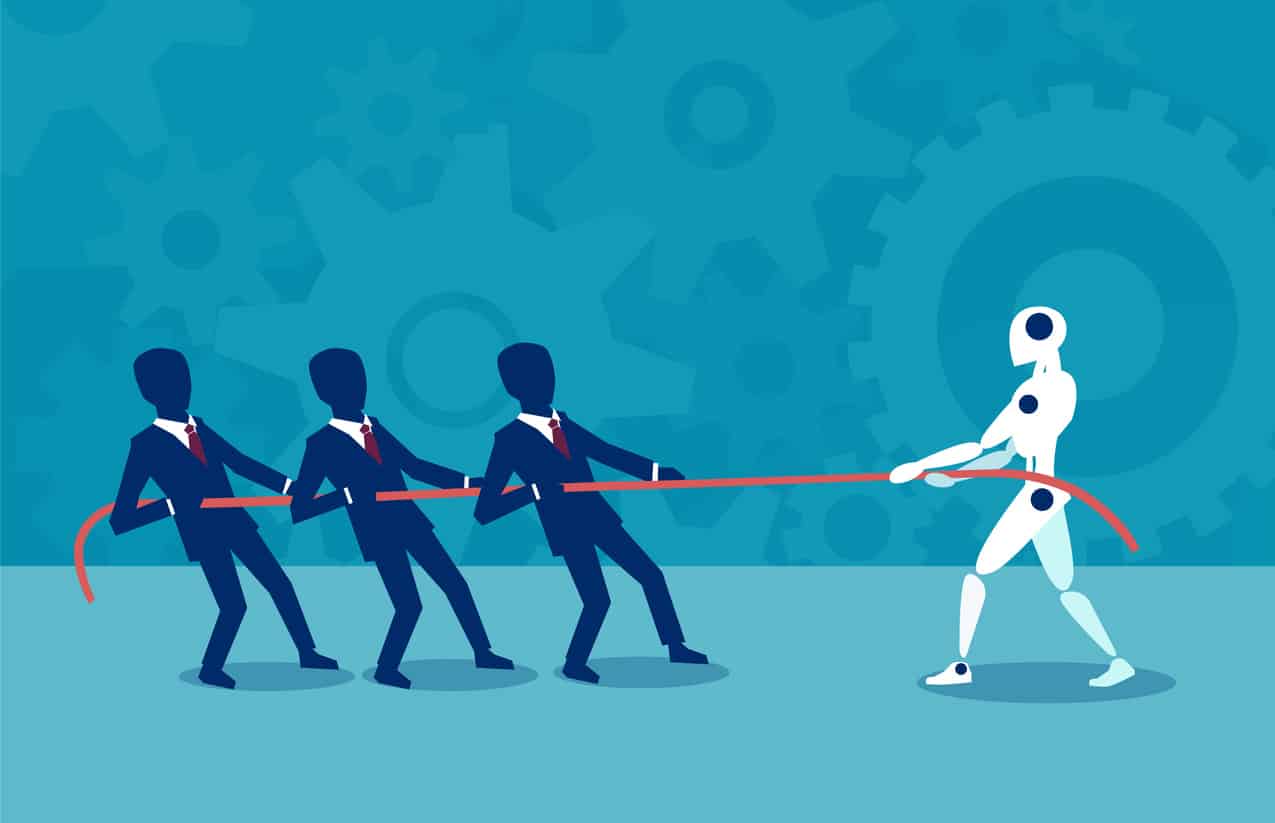There are three groups of people when it comes to AI. The people who disagree and are fearful of it, those in the middle who can see the positives but also the negatives, and then those at the top who are excited by the future of AI.
Personally, I reside in the middle because I don’t know anymore about the future of AI than the next guy. As Tim Urban, founder of Wait But Why said “We cannot regulate technology that we cannot predict” – so in many ways I’m with Urban on this one. But I must say, Dr Catriona Wallace made some very persuasive arguments on the matter at CeBit Australia.
Based between the US and Australia, Catriona is the Founder & Executive Director of Artificial Intelligence FinTech and ASX Listed company (ASX:FGO) Flamingo Ai, provider of Machine Learning based Cognitive Virtual Assistant technologies. Flamingo Ai is the second only woman led (CEO & Chair) business ever to list on the Australian Stock Exchange.
Here’s what Dr Catriona Wallace told the audience at CeBit in Sydney yesterday.

In the world, there are three major problems: climate change, nuclear war and disruptive technologies. By disruptive technologies, we’re taking about the work that is to be done in terms of ethics, human rights and coding bias.
(AI) is the fastest growing tech sector in the world with $38 billion invested in the last 12 months, due to grow 12 fold in the next five years” says Dr. Catriona Wallace, Founder, Flamingo Ai.
AI has the potential to be life-changing – but it must be controlled. Specialists are saying that in as little as 15 years we could experience singularity – a time when AI will be “smarter, faster and more capable of doing work and programming and thinking than humans” she adds. This is why it could get scary.
What happens to the humans? If it goes anything like iRobot, then it’s not going to play out too nicely. In saying that it could be great for many things in the social sphere. Today we have apps for disability assistance (e.g. Seeing AI), for autism (Look At Me and Empower Me), apps that collect evidence of domestic violence suitable for court, and even facial recognition apps that help track lost children. Thanks to these incredible algorithms, we’re able to provide such things, and what Catriona is saying is that it can only get better and better.

But what could go wrong? Well the big one is the hit that global employment will take. We’re already experiencing issues with redundancy in almost every sector there is, and according to statistics, $1.8 million jobs will be replaced by AI. And even though $2.3 million jobs are set to be created, those $1.8 million who lose out won’t necessarily just slot into those new jobs…so what happens to them? Is Yuval Harari correct in saying that that group of people become the “useless class.
These are all issues to think about. And what needs to be addressed first is the bias in coding and data which can be detrimental to its progress. A good example is the app called Babylon that can predict heart attacks. The coding is designed to recognise these patterns in middle-aged males. There have been cases where females have experienced the same symptoms, but the app has only recognised the heart attack as a “panic attack” – which essentially is the difference between life and death.
So will AI realise its potential? Stephen Hawking said it depended on whether or not we can control it and Elon Musk says we’re summoning the demon by advancing AI. Who do we listen to? I guess we just have to find out and see.
We can lead humanity through this potentially difficult time with great ethical leadership” concludes Catriona.





